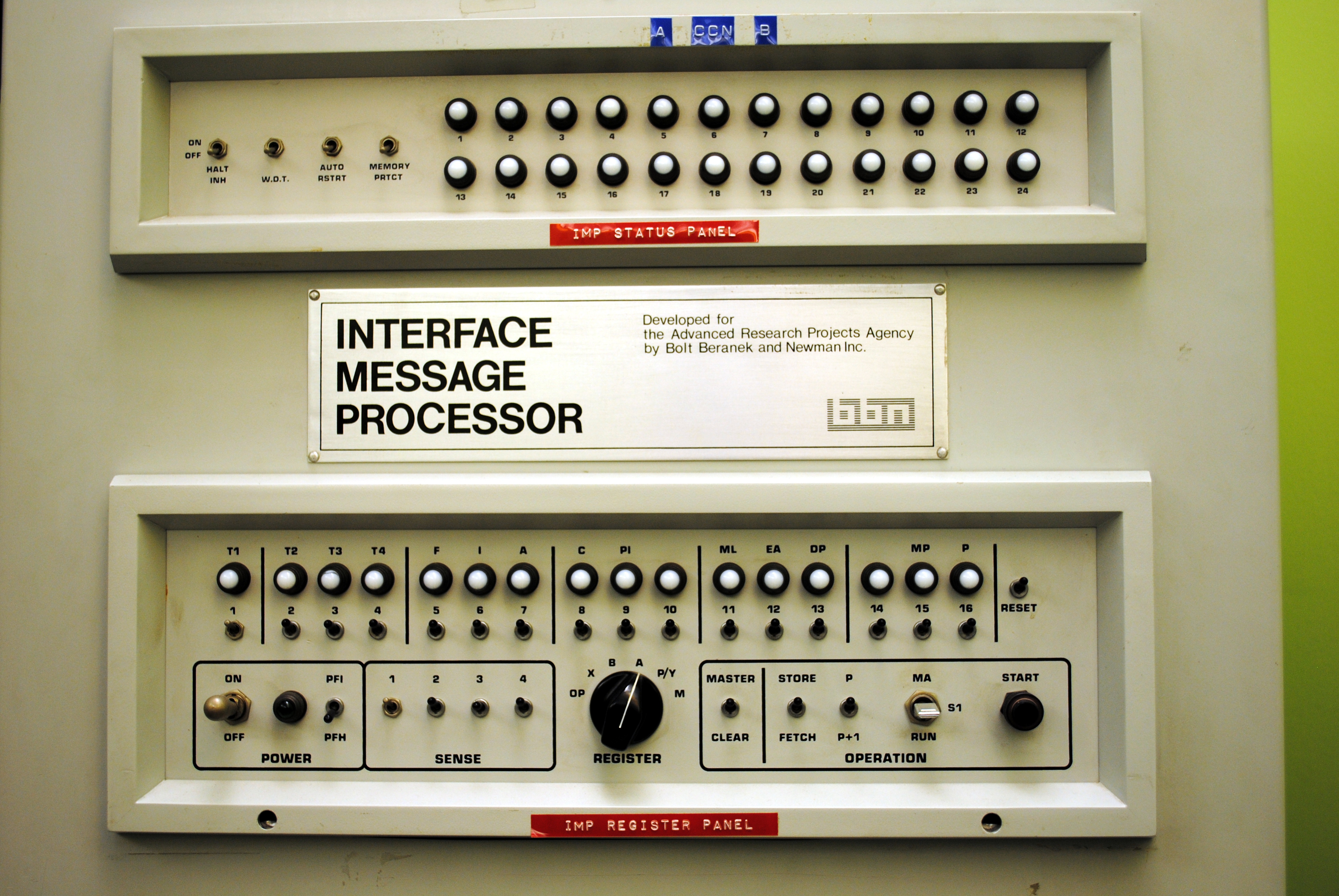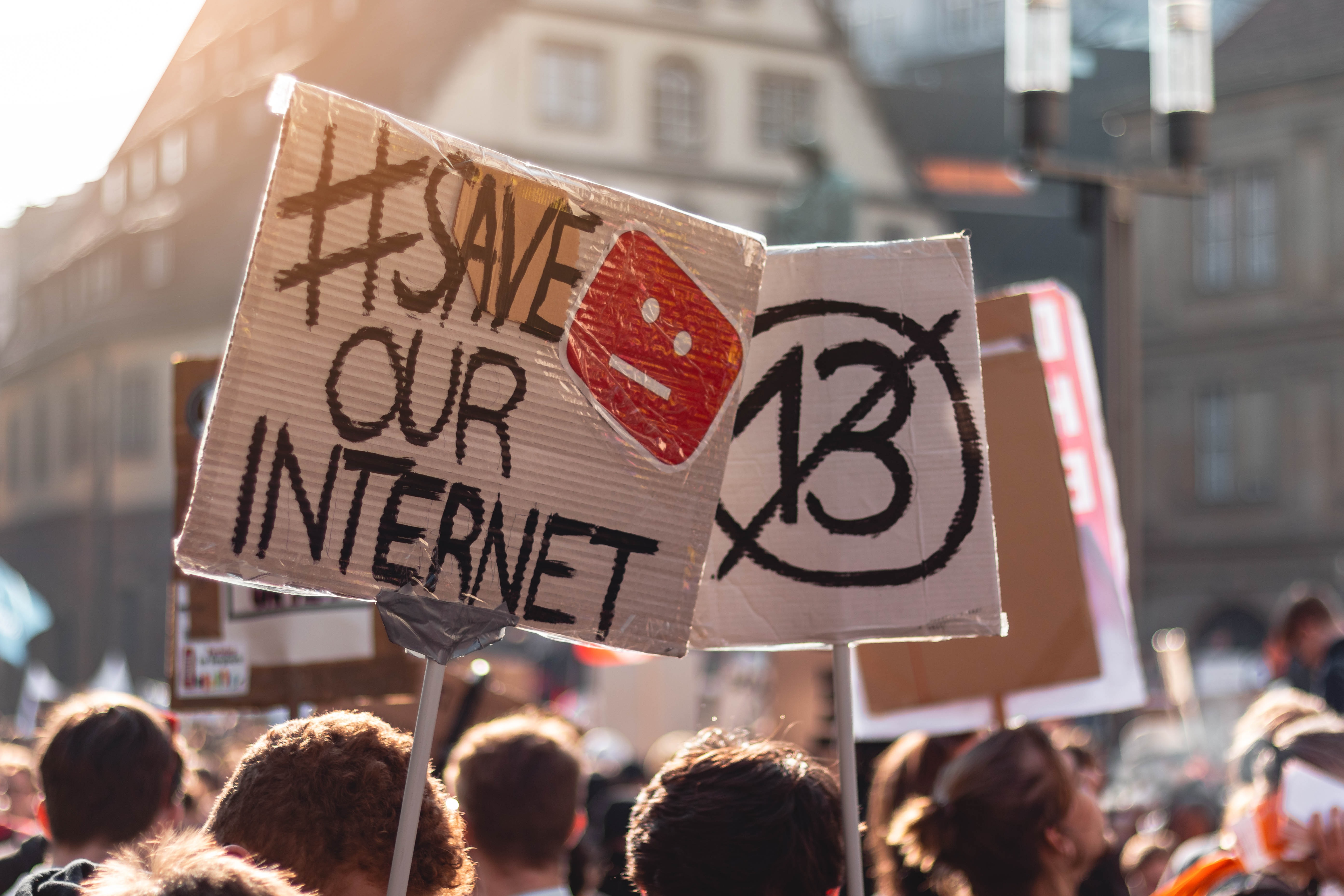Adopted by over 5 billion people in the first 30 years of its existence, the internet is easily the most disruptive invention of the last century. It was an astonishingly simple concept back then and very few foresaw the behemoth that it would soon become. Those that did however, became gods themselves, both in terms of wealth, power and/or influence. It has since permeated through almost every aspect of our personal and social lives, and continues to devour millions of human hours every day.
Most of us know how it all began, but for those who don't, the internet started out in 1969-1970 as a connection between a small group of computers, that the US Department of Defence hooked up through pre-existing phone lines to share military info. At the time, they called this connection the ARPANET (Advanced Research nobody cares Projects Agency Network), and its purpose was to keep communication alive even if a part of the network, meaning one or more connected computers, were destroyed by a nuclear attack. The information was shared between all the computers, so unless a major portion of the network was destroyed, most if not all of the information would remain intact.
 IMP was the WIFI router equivalent of ARPANET
IMP was the WIFI router equivalent of ARPANET
But at present, the internet is no different from a biological entity. Continuously evolving, absorbing data, churning it into information and shitting it back to those who will then use it to fertilize their own bank accounts. Like many living organisms, it looks innocent on the outside, but is a lot darker underneath, quite literally.
The Dark Web
This is often a very misunderstood topic, mainly because of how difficult it is to reach its true horrors. The dark web is the part of the internet which is not publicly accessible through your traditional browsers and is restricted by most governments. The only way to access sites on the dark web is to use a browser called TOR, the onion router. It is called so because, like an onion, it hides your location under several layers to misdirection. However this also makes it unreliable and terribly slow (but on the other hand you become to truly anonymous). The dark web is home to all kinds of illegal stuff, from drugs to stolen credit card markets to child porn. All the sites use long and weird names like "eajwlvm3z2lcca76.onion" which provides temporary protection from ethical hackers actively hunting them down using DDoS attacks.
But why I say it is misunderstood is because, it is very often blown out of proportion.

You might have even seen this image before, but the deep web is simply everything on the internet that is blocked behind a paywall. For instance even the premium posts on Medium.com or Washington Post come under this category. The dark web, however, constitutes only around 0.03% of the internet and most of the above mentioned drug markets and credit card websites are just frauds looking for some easy bitcoin. So it isn't as bad of a picture as the hungry for attention tech websites paint it to be. I am not against the general Internet (wouldn't matter if I was) and it is crucial to note that without the wildfire rate of information and awareness spread especially in these tough times, all thanks to the internet we saw CoVID coming ahead of time, and were somewhat prepared for its inevitable impact down the road.
But dude, you just said the internet is a lot darker underneath, did you downplay it just to grab our attention?
I hate to transition back to the negative tone, but this has to be written out somewhere. The true darkness of the internet hides just behind all the sunshine and butterflies it shows you. Recently an app called FaceApp faced backlash for a line in its Terms And Conditions that said any image uploaded to the app would then come under its ownership and could be used wherever it pleased. Many people were upset and chose to boycott the app for a while. However what everyone failed to notice was that, such a line is literally in every social media site's T&C ever. It is a standard statement (link for proof) that allows the photos uploaded by you to be shown on someone else's phone without breaking any laws. But see how easy it is to abuse that? Zuckerberg essentially has ownership of photos of every person who lived since the release of Facebook, and with a billion people using it each day, he essentially controls public opinion on all major issues including but not limited to, national elections.
 * sigh *
* sigh *
Also, have you ever wondered why Whatsapp is free and how it generates revenue while hosting servers for two hundred million users? Jeff Bezos knows which underwear you prefer and with Amazon eradicating physical shopping all over the globe, soon you'll be buying Amazon Basics branded water. Fitting isn't it? Data is the new oil, we are the pumps, and the internet is the electricity being fed to us. But admittedly, I too use all of the services that were just ranted about and also know that life would be a lot harder without them. However my point is that, privacy is a myth, your every swipe and tap is only training the AI behind your screen, continuously calculating what you can be shown next to keep you scrolling. Social media is simply another source of fleeting and temporary pleasure much like a bar of chocolate, and no matter how much you might think otherwise, these moments will always end with you feeling dissatisfied and then guilty of having wasted so much time gawking at the life of some foreign person who in reality is no more cheerful than yourself, quite possibly even less so. Our thirst for social validation grows unchecked, and ironically so does our distance from actual friends. Texting will never be able to reproduce the emotions our vocal chords can, and consequently, apps that are supposedly meant to connect people, only succeed in further alienating them.
Ultimately, my goal is not to upset you, but to frame in sentences what you have known deep inside for a while. Don't fall into their endless pit custom sized to fit you. Be mindful of what you see online, for most of it is not representative of the complete truth, and in a world filled to the brim with daydreaming wannabes, don't try to fit in.